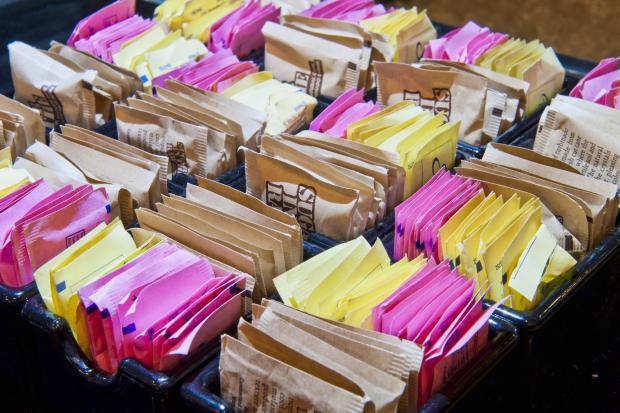
Breaking News
 Sunday FULL SHOW: Newly Released & Verified Epstein Files Confirm Globalists Engaged...
Sunday FULL SHOW: Newly Released & Verified Epstein Files Confirm Globalists Engaged...
 Fans Bash Bad Bunny's 'Boring' Super Bowl Halftime Show, Slam Spanish Language Performan
Fans Bash Bad Bunny's 'Boring' Super Bowl Halftime Show, Slam Spanish Language Performan
 Trump Admin Refuses To Comply With Immigration Court Order
Trump Admin Refuses To Comply With Immigration Court Order
 U.S. Government Takes Control of $400M in Bitcoin, Assets Tied to Helix Mixer
U.S. Government Takes Control of $400M in Bitcoin, Assets Tied to Helix Mixer
Top Tech News
 SpaceX Authorized to Increase High Speed Internet Download Speeds 5X Through 2026
SpaceX Authorized to Increase High Speed Internet Download Speeds 5X Through 2026
 Space AI is the Key to the Technological Singularity
Space AI is the Key to the Technological Singularity
 Velocitor X-1 eVTOL could be beating the traffic in just a year
Velocitor X-1 eVTOL could be beating the traffic in just a year
 Starlink smasher? China claims world's best high-powered microwave weapon
Starlink smasher? China claims world's best high-powered microwave weapon
 Wood scraps turn 'useless' desert sand into concrete
Wood scraps turn 'useless' desert sand into concrete
 Let's Do a Detailed Review of Zorin -- Is This Good for Ex-Windows Users?
Let's Do a Detailed Review of Zorin -- Is This Good for Ex-Windows Users?
 The World's First Sodium-Ion Battery EV Is A Winter Range Monster
The World's First Sodium-Ion Battery EV Is A Winter Range Monster
 China's CATL 5C Battery Breakthrough will Make Most Combustion Engine Vehicles OBSOLETE
China's CATL 5C Battery Breakthrough will Make Most Combustion Engine Vehicles OBSOLETE
 Study Shows Vaporizing E-Waste Makes it Easy to Recover Precious Metals at 13-Times Lower Costs
Study Shows Vaporizing E-Waste Makes it Easy to Recover Precious Metals at 13-Times Lower Costs
Everything You Never Wanted to Know About Artificial Sweeteners

There are a lot of myths about artificial sweeteners. The main one is that they're actually better for you than regular sugar. Low-calorie sweeteners have been around for decades now, and we're finally at a point where we've studied them enough to understand roughly how they work and what effect they have on our bodies.
Erm … is that whole cancer thing true?
Let's get this one out of the way. While it is true that some rodent studies found increased rates of certain kinds of cancer, like leukemia, after eating artificial sweeteners, subsequent testing has shown that you don't need to worry about getting cancer from your diet soda. You'd have to regularly consume astronomical doses of the stuff. On the other hand, we do know that obesity is a major risk factor for many kinds of cancer, so maybe focus on that instead of sucralose.
So I should pick diet soda over regular to lose weight then, right?
We hate to be that guy, but "well, actually …" a lot of the evidence suggests you'd be better off just trying to cut back on the regular soda. It does seem like having fewer calories should help you lose weight, but studies indicate that weight loss isn't as simple as calories in versus out. You can trick your tastebuds (sort of) into thinking that aspartame or saccharin is the sugar you crave, but your brain isn't so simple.
More and more evidence is piling up that suggests the diet drink trend is misguided. Or as one 2008 study on obesity and artificial sweeteners asked in its conclusion: "are [artificial sweeteners] fueling—rather than fighting—the very epidemic they were designed to block?"
A few recent studies suggest that consuming fake sugar actually trains your insulin response to store more fat, not less. Basically when you consume real sugar, your tastebuds send an alert to your pancreas that says, "Hey, calories are on the way! Prepare to produce insulin!" The insulin then helps break down the sugars, which either provide immediate energy or go into fat cells for storage. If your body interprets something as sweet when there's not really sugar on the table, though, it may end up producing that same insulin response. So that diet soda is still prompting your pancreas to store fat, even though you're not getting to enjoy real sugar—your brain can tell the difference. Artificial sweeteners don't trigger our reward circuits the same way, so you don't get the satisfaction of ingesting sugar.
And on top of that, constantly pumping up your insulin response eventually leads it to malfunction. This is essentially what happens in type 2 diabetes, but can occur to a lesser—but still harmful—extent in otherwise healthy people. Eventually your pancreas starts producing too much insulin in response to all food, making you pack on the pounds.
This whole theory is still being tested, but it's in line with what we observe in people who drink diet beverages: they tend to gain weight. In observational studies you can't tell whether that's causative or if it's just that overweight people tend to drink more diet soda than people at a healthy weight. One clue is that scientists observe what's known as a dose response. The more artificial sweeteners people consume, the more weight they seem to put on. That suggests it might be the fake sugars themselves that prompt the gain in poundage, not just an association.

 Smart dust technology...
Smart dust technology...

